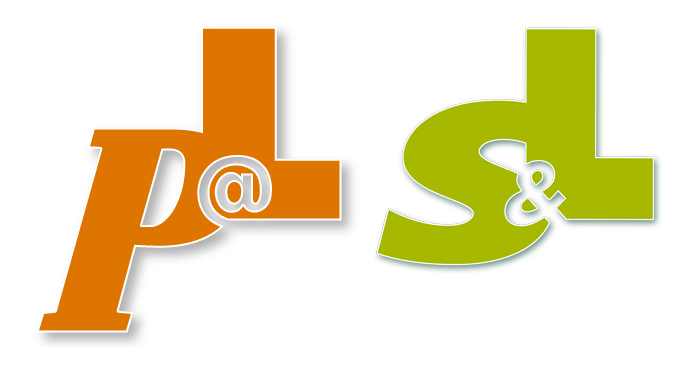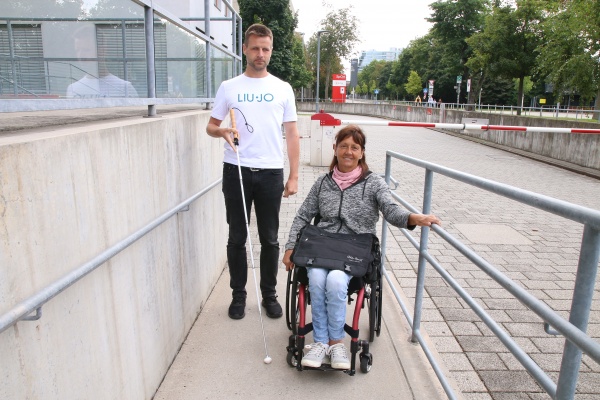Inspect First - Then Refurbish
In recent years, the number of artificial pitches used to practise sports has continued to increase, largely replacing old surfaces such as ...


YOUR FORUM FOR PLAY, SPORTS UND LEISURE AREAS

Organized sport in a club brings people together across borders and generations. However, being able to actually implement this principle in all areas of sport can sometimes turn into a challenge – for example when people with and without physical, cognitive or mental health impairments do sport together. Not only personal reservations or uncertainty about the right way to deal with one another play a role, but often also architectural and structural barriers. After all, how are wheelchair users supposed to access an indoor sports arena that can only be reached by climbing stairs or an emergency exit that even leads to an adjacent green meadow?
But where there is a will, there is usually also a way. And on this path, you can usually avoid or even overcome less high physical barriers. The same applies to personal contact between people with and without physical, cognitive or mental health impairments. Einfach machen! (Just do it!) – that is the motto of the Württemberg Sports Association (WLSB) when it comes to inclusion. Simply getting going and daring to make a start is often the best way to gain practical experience. Quite often, some difficulties turn out to be less grave than anticipated.
The WLSB, as the umbrella organization for sport in Württemberg, considers it essential to sensitize people to the issue of disability and inclusion. After all, the actual sports practice, in which inclusion should be lived and implemented, takes place primarily in the approximately 5700 member clubs and the more than 60 sports associations of the WLSB. The umbrella organization does not want to enforce inclusion in its member organizations, but rather wants to create a culture of enabling and empowerment – and this may vary from sport to sport, from club to club.
Important measures taken by the umbrella organization include providing impetus and promoting exchange between the various sports organizations. That is why the WLSB held a symposium entitled “Einfach machen! - Inklusion im und durch Sport” (Just do it! – Inclusion in and through Sport) in Stuttgart in May 2019. More than 150 guests from the world of sports as well as from organizations for the disabled and others used this event to catch up on the latest news and developments and to network. The WLSB had, among other things, organized a series of workshops and various join-in activities and, of course, also presented its own range of activities, facilities and support services for sports clubs. The documents pertaining to the Einfach machen! symposium can be downloaded by anyone free of charge from the WLSB Infothek (https://www.wlsb.de/veranstaltungen-wlsb/fachtag-inklusion).
However, this event in May 2019 constitutes only a small fraction of the WLSB’s activities in the field of inclusion in and through sport. As a member of the German Olympic Sports Confederation (DOSB), the WLSB bases its other spheres of activity on the five fields of action recommended by the DOSB: sporting opportunities, accessibility, qualification, cooperation and structures. The key to successful inclusion in and through sport lies in considering all these fields of action since they are closely interwoven. After all, it is of little use converting a sports facility into an accessible one if there are no qualified sports coaches with expertise in delivering inclusive sport.
The five fields of action in detail:
Accessibility
Whoever has put themselves in the shoes of a person with a physical or sensory impairment and has tried for just one hour to explore and interact with their environment in the way the disabled do, will quickly realize: there are a number of barriers that pose minor or major difficulties. Therefore, the WLSB is currently developing guidelines on accessibility for sports clubs.
The accessibility of sports facilities naturally plays a major role. On the one hand, existing sports halls have to be checked for accessibility; on the other hand, it also has to be ensured that the needs of persons with physical and mobility impairments are taken into account in the planning of new buildings. According to experts, the additional costs are low if sports halls are designed and built to be accessible from the outset – compared to the additional effort and expense involved if existing halls have to be retrofitted.
When new buildings are being planned, the “two-senses principle” (sight and touch or hearing and touch) as well as the “two-channel principle” (e.g. offsetting stairs by a ramp) should be applied. This allows also severely sight-impaired or hearing-impaired and mobility-impaired persons to participate in inclusive sporting activities. With this in mind, a few months ago the WLSB took a closer look at its own educational institutions, the state sports institutes in Albstadt and Ostfildern-Ruit as well as the SpOrt Stuttgart sports, educational and service centre, and saw a need for improvement in several places there as well.
In addition to accessibility of buildings and sports facilities, the WLSB has also turned its attention to accessible communication. Many texts, documents or forms that you come across day in and day out are sometimes too complicated and complex even for “normal” people. How are mentally impaired people supposed to comprehend such texts? “Plain language” can help people to fully participate in social life; however, it is also necessary to consider which texts, documents or forms should reasonably be “translated” into plain language, both in terms of content and the effort involved. Further information can be obtained from the regional association of Lebenshilfe für Menschen mit Behinderung e.V. (a self-help organization providing help, support and advice for persons with disabilities) in Baden-Württemberg. Web accessibility barriers for persons with visual impairments can also be overcome with the help of screen readers or sufficient colour contrasts.
Sporting opportunities
Many member organizations of the Württemberg Sports Association have already embraced “Inclusion in and through Sport”. To ensure that these are not only locally known, but can also network at a regional level, the WLSB has created an online map showing examples of best practice in inclusive sporting opportunities. Of course, this map also helps anyone interested in sport to quickly find suitable sporting opportunities.
Qualification & sensitization
As inclusive sports groups are usually very heterogeneous, the coach or fitness instructor must not only have proven sporting expertise, but also a great deal of empathy and sensitivity. The WLSB and its sports associations therefore provide special qualification measures, for which you can register on the WLSB website.
Cooperation & structures
As an umbrella organization, the WLSB supports its member clubs in finding cooperation partners. It also provides assistance in finding suitable contacts in the respective region or with a sports association. A group of experts on inclusion, in which various welfare associations are also represented, provides the association with a very good network of contacts outside organized sport. Members of this expert group include:
Financial support
Inclusion in and through sport is not only about developing the right mindset, but in many places it is also a question of money. Since inclusive sports groups often require an increased level of care, assistance and supervision, sometimes an additional coach or an assistant is necessary or special sports equipment (e.g. sound footballs for five-a-side football for the blind), transportation services, a mobile ramp, etc. are needed – and such things cost money. That is why the WLSB as well as numerous state sports associations in Germany also provide funding for inclusion-promoting measures in the member clubs. For if the motto “Just do it!” is actually put into practice, this must not be allowed to fail due to lack of funds.
It is now ten years since the Federal Republic of Germany signed the United Nations Convention on the Rights of Persons with Disabilities in March 2009. In recent years, gradual progress has been made in the efforts to ensure the full and effective participation of persons with physical or mental impairments in sport on an equal basis with others. For example, the WLSB has not only incorporated inclusion as an objective into its statutes, but has also provided the appropriate staff for this field of sports and club development at the office. With Ines Rathfelder and Sport Inclusion Manager Alexander Fangmann, who has been blind since childhood, the WLSB has a dedicated and committed duo, which provides competent advice and support to the member clubs and associations. Alexander Fangmann in particular is well aware of the inclusive power of sport, as he is the captain of Germany’s national blind football team.
In addition to the social aspects, inclusive sport also has positive effects on the health of persons with physical or mental impairments. Giving these people access to and participation in sport and physical activity kills two birds with one stone. Therefore, efforts to provide more sporting and fitness opportunities for all must not be limited to the commitment of sports clubs, but must also be undertaken in public space. These days, there are far too few suitable spaces for children and young people in particular to engage in physical activity.
And the situation is even worse for children with physical and mental impairments. For hardly any playground in Germany is truly accessible - from the use of sand or gravel as surfacing material to play huts that can usually only be accessed via steps and climbing frames that are much too narrow for adults as accompanying persons. Even if the design of playgrounds is not the job of the Württemberg Sports Association: in terms of raising awareness and sensitizing people to inclusion, this issue should also be addressed in order to provide more opportunities for all children to engage in sport and physical activity.
The WLSB support services “Inclusion in and through Sport” are based on the fields of action and subject areas defined by the DOSB for this issue
Contact:
Sport Inclusion Manager Alexander Fangmann
Phone: 0711/28077-157
E-Mail: alexander.fangmann@wlsb.de
For more detailed information, please visit www.wlsb.de/inklusion